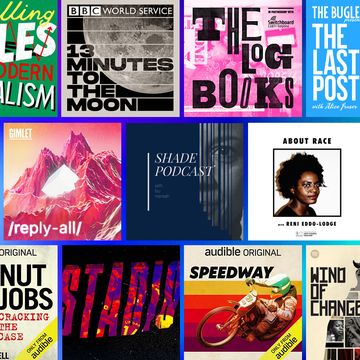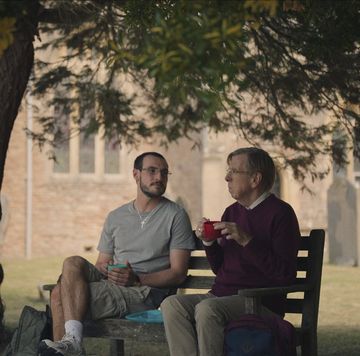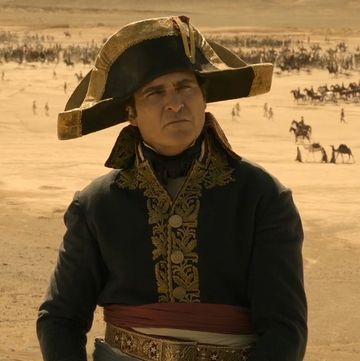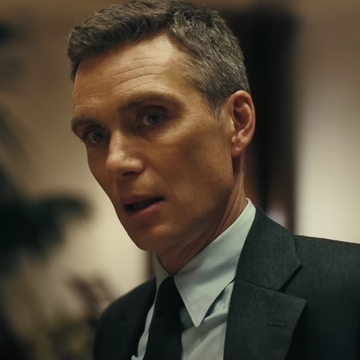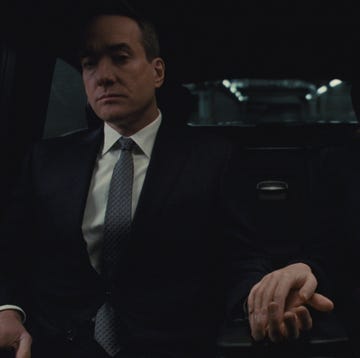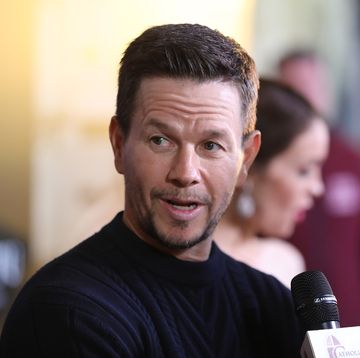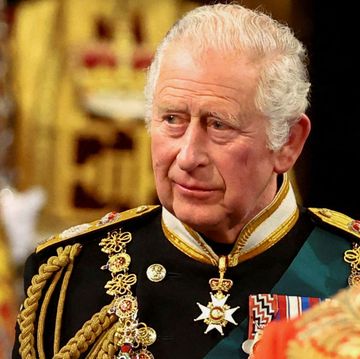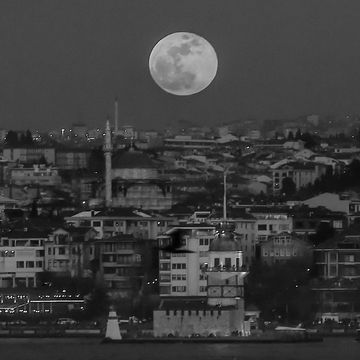The post-Weinstein era has forced us to reexamine much of the pop-culture we consume and love as many famous men stand accused of varying forms of sexual misconduct. And yet the work of Woody Allen, who's lurid and complicated past has trailed him for more than a quarter century, has mostly escaped scrutiny—until now. Events of the last several days strongly suggest that his reckoning has arrived.
In 1992, Dylan Farrow accused Woody Allen—her adoptive father—of molesting her at their Connecticut home. Allen denied the allegations, for which he was never prosecuted, and it was a grim aspect of a bigger domestic dispute between the director and his then-partner, Mia Farrow. Dylan's accusations coincided with the end of Allen and Farrow as a couple following the relationship between Allen and Soon-Yi Previn, Farrow's adopted daughter from her previous marriage to singer Andre Previn. The coupling between Allen and Previn overshadowed the accusations of assault raised by Dylan. In the '90s, the conversation surrounding the most notorious aspects of the Farrow-Allen breakup became, simply, a joke; the accusations of sexual abuse were reframed, with many suggesting Farrow coached her young daughter in retaliation for Allen's relationship with her other adopted daughter.
And Woody Allen didn't stop making movies. In fact, three of his four films released in the next three years earned him Oscar nominations for Best Screenplay. Dianne Wiest won Best Supporting Actress for 1994's Bullets Over Broadway, and Mira Sorvino won the same award for her breakout role in 1995's Mighty Aphrodite. The next decade saw the director's films earning less critical praise, but he still churned out a movie every single year—most of them starring A-list actors. To be in a Woody Allen movie has always been a Hollywood rite of passage.
In 2014, Dylan Farrow wrote an open letter, published on Nicholas Kristof's blog for The New York Times, that not only revealed the details of the alleged assault but also called out many of the Hollywood actors who have publicly supported Allen by appearing in his films. Farrow's open letter came a week after Blue Jasmine earned three Oscar nominations: Best Actress for Cate Blanchett (who eventually won the award), Best Supporting Actress for Sally Hawkins, and Best Original Screenplay. "Woody Allen is a living testament to the way our society fails the survivors of sexual assault and abuse," Farrow wrote.
Since Farrow's open letter, Allen has released four films. This year will see the release of A Rainy Day in New York, which stars Timothée Chalamet, Selena Gomez, Elle Fanning, and Jude Law. I have to wonder, however, if this could be the last Woody Allen movie that will hit theatres—if it is released at all. While the allegations against Allen have never before affected his career, we are, as a collective culture, changing the ways we approach pop culture created by men whose alleged toxic behaviour overshadow their work. Kevin Spacey was dropped from his leading role in House of Cards; Louis C.K.'s I Love You, Daddy was pulled from distribution. What can we expect from Woody Allen, who has consistently denied Farrow's allegations and has had the continued support from the industry's major players, despite Farrow's questioning as to why the #MeToo movement has spared his reputation?
A shift is definitely happening, as several actors who have previously worked with Allen expressed misgivings or regret over their association with Allen. Actor Griffin Newman donated his salary from A Rainy Day in New York to the Rape, Abuse, and Incest National Network (RAINN) last year; this weekend, Rebecca Hall and Timothée Chalamet followed suit. "I am learning that a good role isn't the only criteria for accepting a job," Chalamet wrote in a statement posted on Instagram. "That has become much clearer to me in the past few months, having witnessed the birth of a powerful movement intent on ending injustice, inequality, and above all, silence."
In an interview with The New York Times, Lady Bird writer-director Greta Gerwig, who appeared in 2012's To Rome With Love admitted: "If I had known then what I know now, I would not have acted in the film ... Dylan Farrow’s two different pieces made me realise that I increased another woman’s pain, and I was heartbroken by that realisation. I grew up on his movies, and they have informed me as an artist, and I cannot change that fact now, but I can make different decisions moving forward."
Mira Sorvino, whose career inarguably began with her Oscar-winning turn in Mighty Aphrodite, published an open letter to Dylan Farrow on The Huffington Post. "I cannot begin to imagine how you have felt, all these years as you watched someone you called out as having hurt you as a child, a vulnerable little girl in his care, be lauded again and again, including by me and countless others in Hollywood who praised him and ignored you," she wrote. "As a mother and a woman, this breaks my heart for you. I am so, so sorry!"
Is this the first wave of Woody Allen's final reckoning? With more actors distancing themselves from him and actively speaking out in support of Dylan Farrow, it's hard to imagine that the acclaimed director will rally support from producers for his next film. And I cannot imagine there are many actors who would be willing to appear in any of his future films. As the culture evolves, it's unlikely that a Woody Allen movie title will be something anyone will want on their IMDb page.
Tyler Coates is the Senior Culture Editor at Esquire.com. He lives in Los Angeles.



